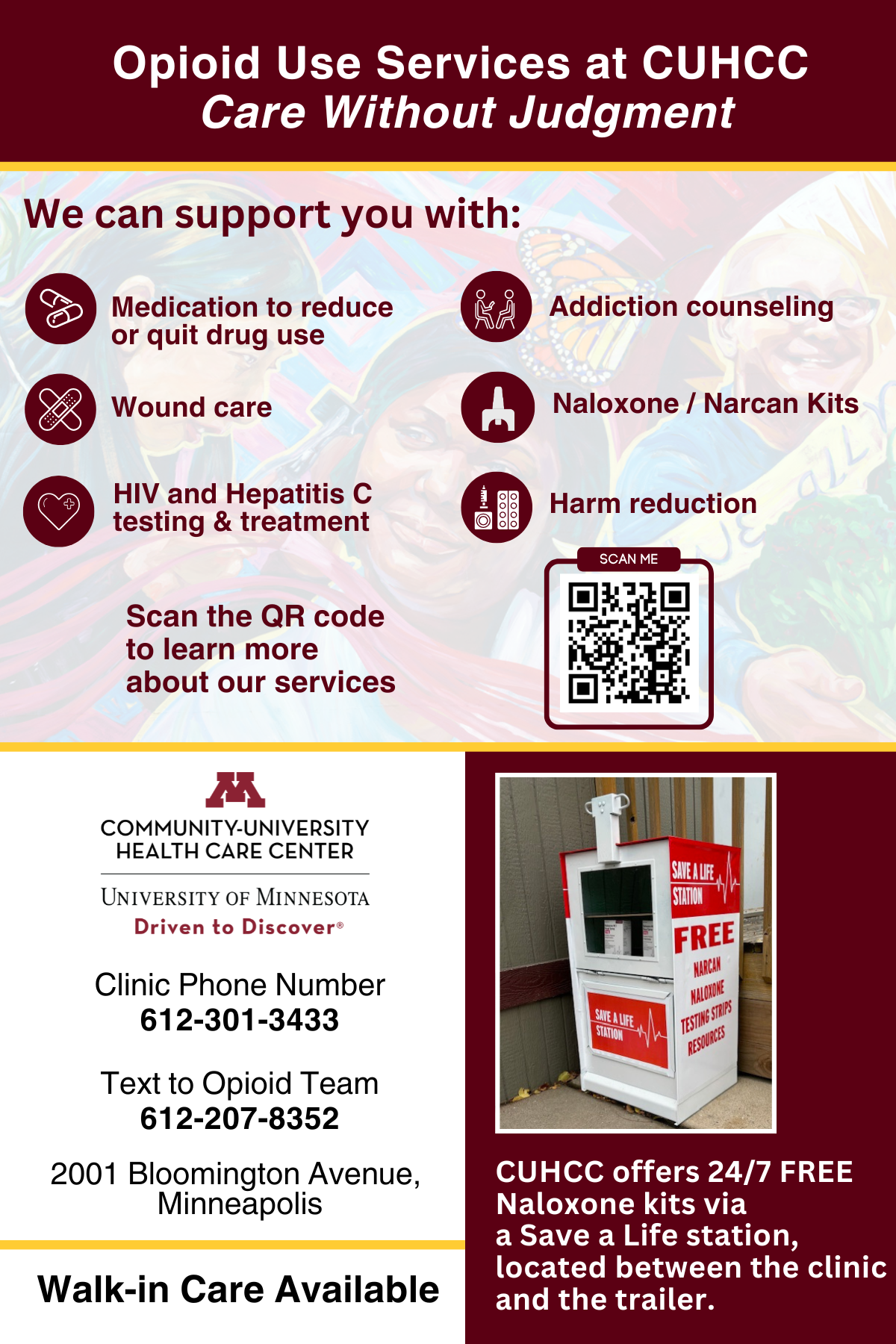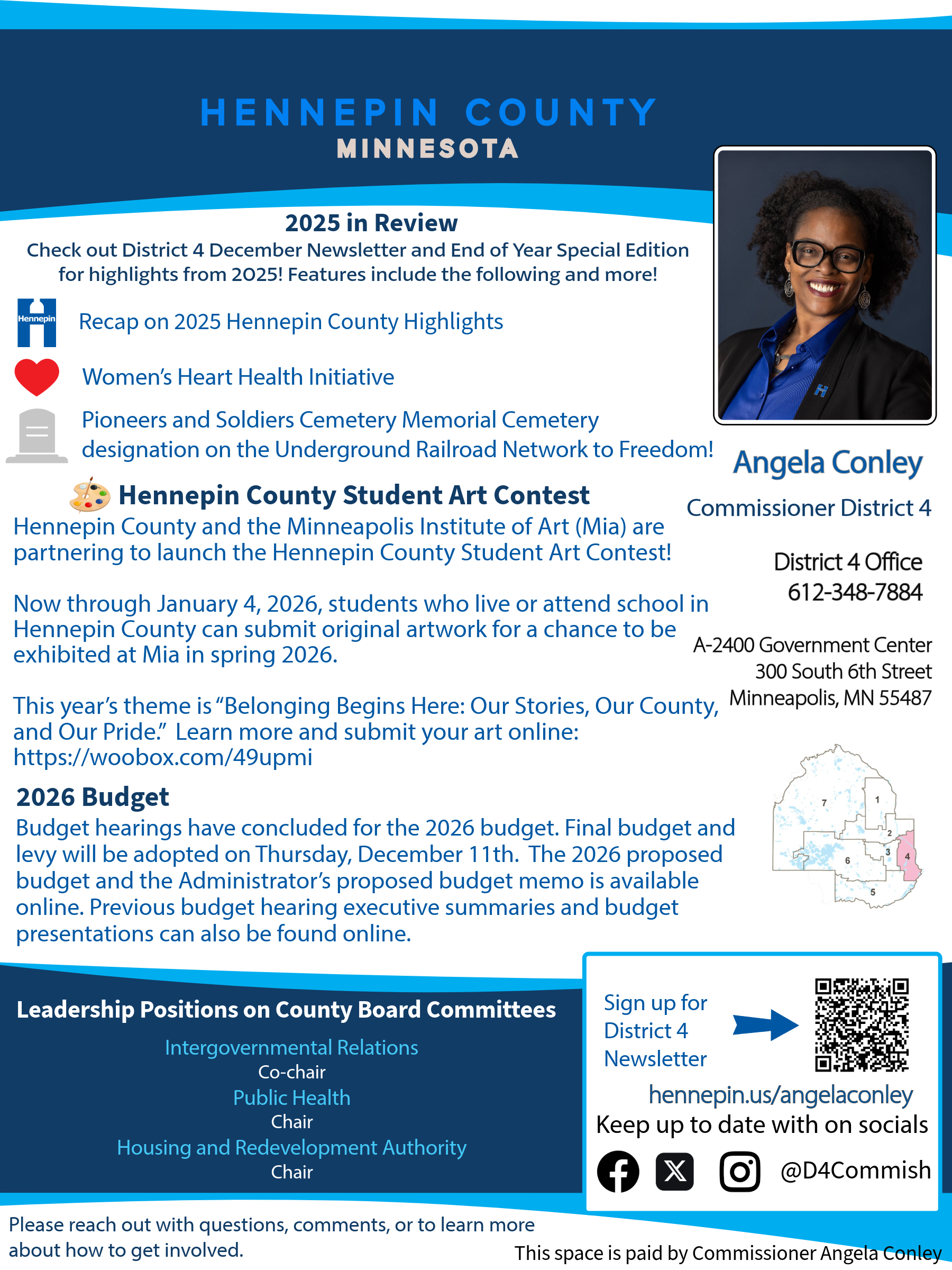By Rand Retterath
The stated mission of Neighborhoods 2020 is “an opportunity to further develop and improve upon the city of Minneapolis”' neighborhood-based engagement structure”¦by the people, for the people.” However, neighborhoods all over the city are opposed to this document.
Here are my concerns:
1. Â The goals are laudable, however, execution is completely contrary to the stated goals. Neighborhoods are held to a standard that is completely disregarded within the city. The proverbial “do what I say, not what I do” applies, and is a mandate with funding as the hostage.
2. Â The stated goals of “public purpose” require neighborhoods to be inclusive, responsive and informative. Regrettably, there is no mechanism in place to hold the council and other decision makers accountable in the same way.Â
3. Â Pooling resources and forcing neighborhoods into a co-operative purchasing will restrict options and diminish localized spending.
4. Â Funding requirements reduce the neighborhood decision-making process. Â At various times MPNAI has elected to do without staff or used part time/volunteer staff in favor of additional community spending. Â The 2020 plan would mandate our actions in this regard by requiring staff.
5.  Community organization funding will be a mechanism to create “group think” across all neighborhoods. It will hold us hostage to a limited set of options.
6. Â The potential exists for uniformity across all neighborhoods in the bylaw process, as well. The “minimum requirement” clause concerns many. These mandated points must be included or risk losing funding.Â
7. It states, “Not all residents can attend an annual meeting but may have interest in participating in the election process. Therefore, an alternate method to vote will be provided.” Is any neighborhood set up to address the complexities this requirement mandates?
8. The document states, “Have no more than 25% of the board membership serve more than 6 years. Require board officer term limits.” What does the first sentence mean? If it is good for us, it should be even better for the council.
9. Neighborhoods are “required to develop a robust engagement outreach plan that includes some form of direct resident contact. Neighborhood organizations should submit a measurable outreach plan that provides residents, including under-represented residents, with multiple opportunities to engage…” Â This one is the most upsetting to me. Residents are routinely blocked from communicating with our elected representative. There MUST be some accountability within this document for shared responsibility between us and council members and their staff. Mechanisms for mutual accountability must be contained within 2020.Â
10. This document is overwhelmingly one-sided in favor of consolidating power at the city level reducing the efforts of community groups. Â
11. It keeps us busy with accountabilities at the expense of community effort and accomplishment.
The following are points gleaned from other neighborhoods in opposition to this proposal. My comments are in parentheses.
– The document is regulatory focused, punitive vs. empowering or supportive.
– The document promotes services from NCR which suggests that the program is about growing NCR, not neighborhoods.
– All neighborhood board elections and annual meetings should be held simultaneously. (How is this possible given the complexities of alternative absentee voting measures?)
– NCR will review bylaws of our organizations and require changes for funding eligibility (another opportunity to reduce individual community identity and efforts in favor of group think).
– While cultural organizations are to be funded, they are not required to include bylaw mandates. Yet another double standard. Furthermore, there are no mandates on outcomes nor financial reviews.
– The funding formula requires 50% to go to administration. Absolutely laughable with the expectations for neighborhoods represented. (For us to spend 50% of our budget on administration”¦ think about that and how much our efforts will be curtailed.)
– It promotes segregated organizing under the rhetoric of inclusion and equity. Neighborhoods are about providing a form for differing points of view on issues or on ideas to develop, not ”“ community organizing. Â
– Citywide universal election day mandate for all non-profits that are receiving money illustrates the lack of understanding as to capacity building, engagement, partnership and celebration of victories and accomplishments. Such a suggestion reflects the lack of understanding in creating a ”˜Sense of Place.”'
– The new program will include a minimum set of requirements that funded neighborhood groups must include in their bylaws.  This is over reach. We are Independent 501c3s with nonprofit directors are legally responsible for fiduciary accountability to neighborhoods.
– Neighborhood organizations give feedback to, not respond to the city. The model requires groups to go thru NCR – NCEC – NRP Policy Board to access city council. (Community groups should have direct access to council members and city department no one should be excluded from direct communication with elected representatives. Remember “taxation without representation.”)
– We need to reject this document. It was written by city staff, and not based on feedback obtained and documented. Grassroots empowerment is NOT a top-down model which this reflects.Â
– The proposed public comment period and timeline are flawed, ineffective and appear only to benefit the department.Â
– Remove NCR from acting as lead on this restructure. They have created deep mistrust with the communities over the last four years by disregarding most, if not all, the feedback the community has already given.Â
Clearly, this summary (and it doesn”'t reflect all of the comments floating in the city) should raise an alarm to all residents reading this. THERE IS NO DIFFERENCE BETWEEN CITY HALL AND THE FEDERAL GOVERNMENT. Absolutely no one is listening to anyone. When we persist, we are blocked from electronic communication, sent to junk mail, and phone calls go unanswered/returned. This should be a concern to anyone who values a democratic republic. I may not like what you have to say, BUT as a veteran, I pledged to defend your right to say it with my life. Please pay attention to this dangerous trend. Call your Council member Alondra Cano, 612-673-2209, email Alondra.Cano@minneapolismn.gov or write to her at 350 South 5th Street, Room 307 Minneapolis, MN 55415 to voice not only your opposition but your expectation of accountability.
Liberté, Égalité, Fraternité (Liberty, Equality, Fraternity)











This is such a crock. Neighborhoods are not representative of their residents. The city is requiring work to be done to get money. You act like the money is expected or entitled. I write grants to foundations that require many of the same things the city is asking.
You should write about how the white power base, are losing power and have created false narratives. Every single one of your points can be argued yet you will never see it because you are full of the kool-aide.